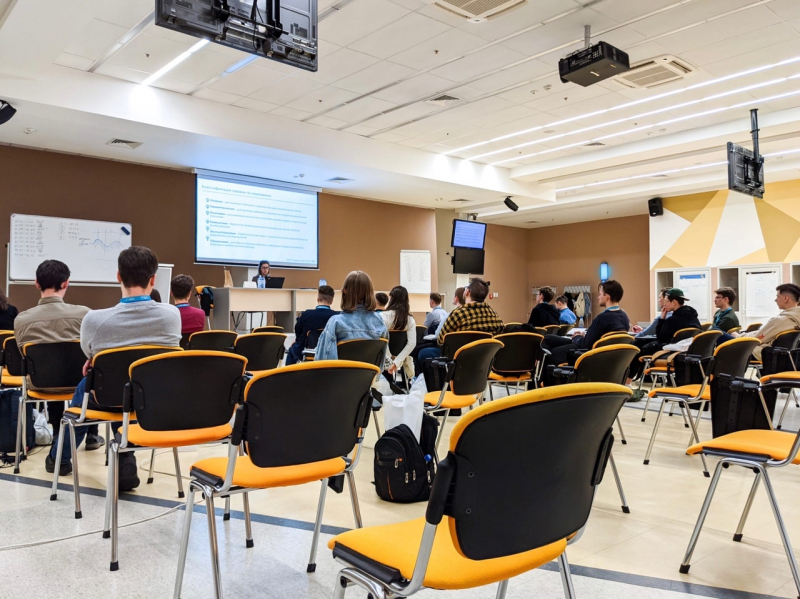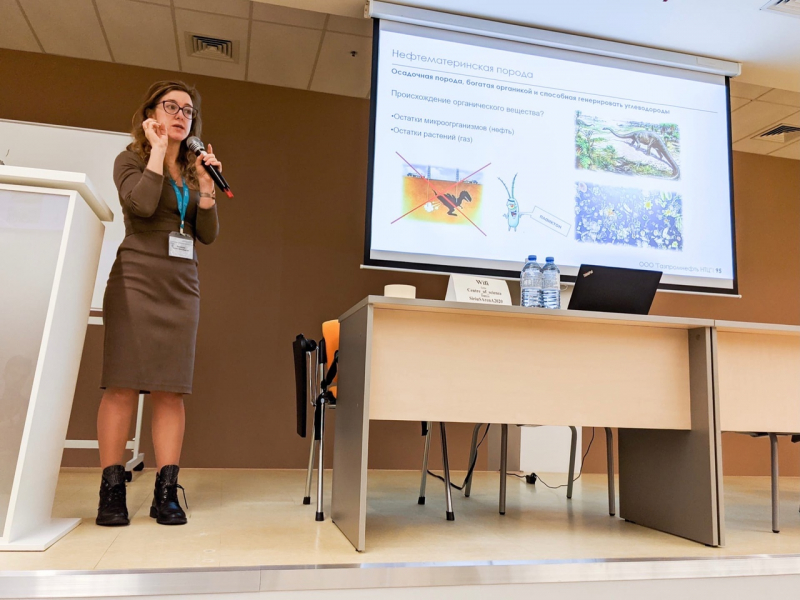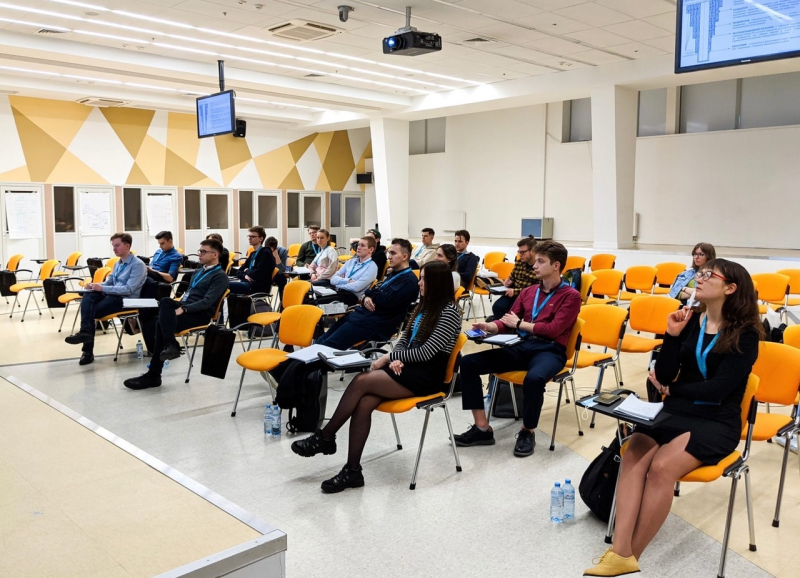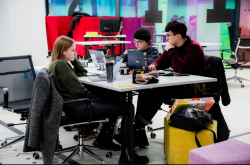Many technologies like the Internet of Things, machine learning, and computer vision have long been used outside IT in manufacturing, sales, the financial sector, as well as in mining and production of mineral resources. That’s why there is a growing demand for IT professionals versed in the specifics of a particular field.
In spring 2021, the Gazprom Neft Science & Technology Center together with the Sirius educational center held a school on applying IT in the petroleum industry. Over three weeks, students who’d passed a selection to join the school, visited lectures on the oil and gas industry and IT, as well as developed their projects assisted by curators from the Science & Technology Center.

The Sirius educational center. Credit: komiinform.ru
ITMO University students were among those who were selected to participate in the school. According to Alexandra Klimova, deputy dean of ITMO’s Faculty of Digital Transformation, such schools provide an additional opportunity for students to learn the actual demands of potential employers.
“In this case, students had to process and interpret geological and geophysical data,” says Alexandra. “Moreover, such events are a wonderful place to network with colleagues from other universities to establish your first professional contacts and exchange experience.”
ITMO.NEWS got in touch with the school’s participants to ask for their impressions of the school.
Andrey Bezborodov, a Master’s student at ITMO
I learned about the school from the Sirius University website. It so happens that my thesis at ITMO has to do with identifying analogs to existing oil and gas deposits, so when I read the school’s description, I knew right away I wanted to take part in it. For me, it was not only a great chance to learn something new and beneficial for my research, but also an opportunity to acquire priceless experience of developing a project in this field.
The initial selection was held in the form of an online hackathon, where we had to come up with a solution to a practical problem. Thanks to the knowledge I’d got at ITMO, I took second place and earned the right to take part in the school.

Spring school in Infocommunication Technologies Application in the Oil and Gas Industry. Credit: vk.com/siriusuniversity
The program lasted three weeks and the classes took place at Sirius Arena in the Sochi Olympic Park near Adler. In the first week, we had introductory lectures, and after that we split into teams of two-three people and each team had to choose a project out of the ten offered. Those were real-life cases that don’t have a single correct solution at the moment. I opted for the project on detecting and identifying geological faults in seismic 3D data. This is a rather non-trivial task at the intersection of deep machine learning and computer vision. As the base for our project, we took the VNET neural network and changed its architecture by adding the attention mechanism and lowering the number of convolutional layers, as well as introducing data augmentation that allowed the network to identify geological faults more efficiently.
We successfully defended our project and what is more, together with our curator, we have written an article for the Oil Industry journal. All in all, the school for me turned out to be not just something to put in my CV, but also new people, new knowledge, and of course a great experience of working on complex projects as part of a team.
Grigory Kulagin, a Master’s student at ITMO
The topic of the school was closely connected to my educational program, so I decided to apply. I wanted to learn about the methods and technologies used by Gazprom Neft to solve their practical tasks. Also, I wanted to get out of St. Petersburg and visit Sochi.

Spring school in Infocommunication Technologies Application in the Oil and Gas Industry. Credit: vk.com/siriusuniversity
At the selection hackathon we had to use machine learning to predict the characteristics of a geological material. We had 24 hours to provide our solutions, and then we were ranged according to the accuracy of our predictions. Based on the ranking, I became one of the participants of the school.
In Sochi, we had quite an intensive program. During the first week, we had five classes a day, from Monday to Saturday. I received tons of new knowledge about geology, as well as about the challenges posed for oil and gas companies and how they can be overcome. Then we divided into teams, each with its own curator.
Our project was on processing photos of geological materials and calculating their characteristics based on these photos. At the end, each team defended their project by presenting their results of two-weeks worth of work. It was interesting to listen to other participants to see the methods they’d used and find something new for myself.




